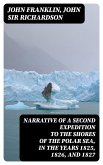Matthew Flinders' "An Expedition through Bass's Strait" presents a meticulous narrative of his groundbreaking voyages across one of maritime Australia's most treacherous passages. Written in the early 19th century, the text is both a personal diary and an insightful account of navigational challenges, indigenous encounters, and the flora and fauna of the region. Flinders employs a lucid and descriptive literary style that vividly captures the awe and peril of exploration during a time when the vast Pacific was both a promise and a peril for European navigators. The work is pivotal within the genre of travel literature, offering a blend of adventure and science that reflects the burgeoning interest in mapping the globe during the Age of Discovery. Matthew Flinders, an English navigator and cartographer, was profoundly influenced by his early experiences at sea and his studies of navigation. His dedication to exploring Australia's coastlines stemmed from a desire to enhance maritime knowledge and facilitate commercial shipping routes. Flinders' background, including his mentorship under esteemed seafarers, equipped him with a unique perspective on the complexities of human and environmental interaction, leading him to meticulously document his expeditions. For those intrigued by maritime history, exploration narratives, or the evolution of cartography, Flinders' work is a vital resource. "An Expedition through Bass's Strait" not only captures the spirit of adventure but also contributes significantly to our understanding of the early 19th-century understanding of Australia's geography and natural history, making it a must-read for historians, navigators, and anyone captivated by the sea.
Dieser Download kann aus rechtlichen Gründen nur mit Rechnungsadresse in A, B, BG, CY, CZ, D, DK, EW, E, FIN, F, GR, H, IRL, I, LT, L, LR, M, NL, PL, P, R, S, SLO, SK ausgeliefert werden.









